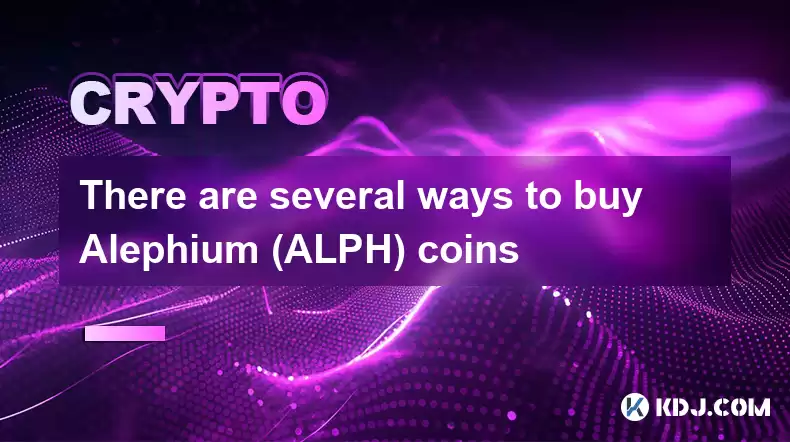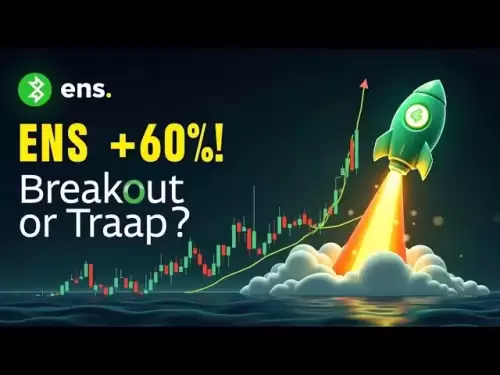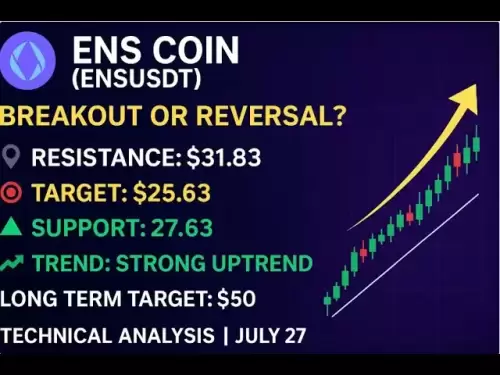-
 Bitcoin
Bitcoin $117900
0.31% -
 Ethereum
Ethereum $3766
0.28% -
 XRP
XRP $3.176
-0.31% -
 Tether USDt
Tether USDt $1.000
0.00% -
 BNB
BNB $795.6
1.51% -
 Solana
Solana $186.8
-1.09% -
 USDC
USDC $0.9999
-0.01% -
 Dogecoin
Dogecoin $0.2353
-1.33% -
 TRON
TRON $0.3226
1.49% -
 Cardano
Cardano $0.8172
-1.08% -
 Sui
Sui $4.178
3.06% -
 Hyperliquid
Hyperliquid $43.05
-3.39% -
 Stellar
Stellar $0.4367
-0.57% -
 Chainlink
Chainlink $18.62
1.47% -
 Hedera
Hedera $0.2828
6.63% -
 Bitcoin Cash
Bitcoin Cash $584.7
5.65% -
 Avalanche
Avalanche $24.81
2.53% -
 Litecoin
Litecoin $112.8
-0.88% -
 UNUS SED LEO
UNUS SED LEO $8.975
-0.08% -
 Shiba Inu
Shiba Inu $0.00001395
-1.07% -
 Toncoin
Toncoin $3.285
-1.05% -
 Ethena USDe
Ethena USDe $1.001
0.01% -
 Polkadot
Polkadot $4.123
0.76% -
 Uniswap
Uniswap $10.49
-0.18% -
 Monero
Monero $326.5
0.14% -
 Dai
Dai $0.9999
-0.02% -
 Bitget Token
Bitget Token $4.576
0.34% -
 Pepe
Pepe $0.00001247
-1.55% -
 Cronos
Cronos $0.1400
3.77% -
 Aave
Aave $295.1
-0.73%
There are several ways to buy Alephium (ALPH) coins
To acquire Alephium (ALPH) coins, individuals can utilize centralized exchanges, decentralized exchanges (DEXs), peer-to-peer (P2P) marketplaces, or over-the-counter (OTC) brokers, each offering unique advantages and considerations.
Dec 09, 2024 at 07:36 pm

Several Ways to Buy Alephium (ALPH) Coins
The cryptocurrency market has experienced a surge in popularity in recent years, with various digital assets emerging. Among these is Alephium (ALPH), a blockchain platform that leverages cutting-edge technology to offer enhanced scalability, security, and privacy. To participate in the Alephium ecosystem, users need to acquire ALPH coins. This article explores the different methods available to purchase Alephium (ALPH) coins, providing a comprehensive guide for crypto enthusiasts and potential investors.
1. Centralized Exchanges
Centralized exchanges serve as platforms where users can buy and sell cryptocurrencies. These exchanges act as intermediaries, matching buy and sell orders from users. To purchase ALPH coins on a centralized exchange, you must first create an account and complete identity verification. Once your account is set up, you can proceed with the following steps:
a. Deposit Funds into Your Account: You can deposit fiat currency or other cryptocurrencies into your exchange account. Fiat currencies can be deposited through bank transfers, credit cards, or debit cards. Cryptocurrencies can be transferred from another wallet or exchange.
b. Find the ALPH/Trading Pair: Navigate to the trading page of the exchange and locate the ALPH/trading pair. This will display the real-time market price and order book for ALPH.
c. Place a Buy Order: Enter the number of ALPH coins you wish to purchase and the price at which you want to buy them. You can choose from various order types, such as market orders, limit orders, or stop orders.
d. Execute the Trade: Once you have entered your order details, review them carefully and click the "Buy" button. The exchange will match your order with a matching sell order, and the ALPH coins will be credited to your account.
2. Decentralized Exchanges (DEXs)
Decentralized exchanges (DEXs) enable peer-to-peer trading of cryptocurrencies without the involvement of a central intermediary. Unlike centralized exchanges, DEXs do not hold user funds or manage order books. Instead, they facilitate direct transactions between buyers and sellers. To purchase ALPH coins on a DEX, you will typically need to use a non-custodial wallet such as MetaMask or Trust Wallet. The following steps outline the general process:
a. Connect Your Wallet to the DEX: Visit the DEX website and connect your non-custodial wallet. The DEX will request permission to interact with your wallet's funds. Confirm the connection.
b. Find the ALPH/Trading Pair: Similar to centralized exchanges, locate the ALPH/trading pair on the DEX's trading interface. This will show the current market price and liquidity available for ALPH.
c. Place a Buy Order: Enter the desired amount of ALPH coins to purchase and the price you are willing to pay. Choose the appropriate order type and specify the slippage tolerance, which determines the maximum acceptable price deviation.
d. Initiate the Trade: Once you have entered the order details, review them and confirm the transaction. The DEX will automatically match your order with available liquidity on the platform.
e. Confirm the Transaction: Depending on the DEX you are using, you may need to confirm the transaction on your connected wallet. Follow the prompts to complete the purchase.
3. Peer-to-Peer (P2P) Marketplaces
Peer-to-peer (P2P) marketplaces facilitate direct transactions between buyers and sellers without the involvement of third-party platforms. These marketplaces typically offer various payment methods, including bank transfers, PayPal, and gift cards. To buy ALPH coins on a P2P marketplace, you will need to:
a. Create an Account: Register for an account on the P2P marketplace and complete any necessary identity verification steps.
b. Search for ALPH Listings: Use the search bar to find ALPH listings from sellers. Filter the results based on payment method, price, and reputation.
c. Initiate a Trade: Select a listing and initiate a trade with the seller. Specify the amount of ALPH you wish to purchase and agree on the payment details.
d. Send Payment to the Seller: Transfer the agreed-upon amount to the seller using the specified payment method.
e. Receive ALPH Coins: Once the seller confirms receipt of payment, they will release the ALPH coins to your wallet.
4. Over-the-Counter (OTC) Brokers
Over-the-counter (OTC) brokers provide personalized trading services for high-volume traders and institutions. OTC transactions occur outside of traditional exchange platforms through private negotiations. To purchase ALPH coins through an OTC broker, you will typically need to contact the broker directly and provide details of your order. The broker will facilitate the transaction by finding a counterparty willing to sell ALPH coins at a negotiated price. The following steps outline the general OTC trading process:
a. Initiate Contact: Reach out to an OTC broker and express your interest in purchasing ALPH coins.
Disclaimer:info@kdj.com
The information provided is not trading advice. kdj.com does not assume any responsibility for any investments made based on the information provided in this article. Cryptocurrencies are highly volatile and it is highly recommended that you invest with caution after thorough research!
If you believe that the content used on this website infringes your copyright, please contact us immediately (info@kdj.com) and we will delete it promptly.
- Ruvi AI: The Next Solana? Riding the AI Token Wave on CoinMarketCap
- 2025-07-28 00:50:16
- BlockDAG, Crypto Coin, XRP, ADA, and SUI: Navigating the 2025 Crypto Landscape
- 2025-07-28 00:30:16
- Riding the Bulls: ROI Tokens and the 2025 Momentum
- 2025-07-28 00:55:14
- Coinbase Wallet: Security, Reviews, and What's the Hype?
- 2025-07-28 00:30:16
- Crypto ETFs and Altcoins: Navigating the Wild West with Meme Coins and Tokenized Assets
- 2025-07-27 23:04:06
- Pi Coin in 2026: Will It Be Worth the Wait?
- 2025-07-27 23:10:12
Related knowledge

What is Chainlink (LINK)?
Jul 22,2025 at 02:14am
Understanding Chainlink (LINK): The Decentralized Oracle NetworkChainlink is a decentralized oracle network designed to bridge the gap between blockch...

What is Avalanche (AVAX)?
Jul 22,2025 at 08:35am
What is Avalanche (AVAX)?Avalanche (AVAX) is a decentralized, open-source blockchain platform designed to support high-performance decentralized appli...

What is Polkadot (DOT)?
Jul 19,2025 at 06:35pm
Understanding the Basics of Polkadot (DOT)Polkadot (DOT) is a multi-chain network protocol designed to enable different blockchains to transfer messag...

What is Litecoin (LTC)?
Jul 23,2025 at 11:35am
Overview of Litecoin (LTC)Litecoin (LTC) is a peer-to-peer cryptocurrency that was created in 2011 by Charlie Lee, a former Google engineer. It is oft...

What is Monero (XMR)?
Jul 21,2025 at 10:07am
What is Monero (XMR)?Monero (XMR) is a decentralized cryptocurrency designed to provide enhanced privacy and anonymity for its users. Unlike Bitcoin a...

How to add indicators to Ethereum chart on TradingView?
Jul 19,2025 at 07:15am
What Is an Ethereum Chart on TradingView?The Ethereum chart on TradingView is a visual representation of the price movement of Ethereum (ETH) over a s...

What is Chainlink (LINK)?
Jul 22,2025 at 02:14am
Understanding Chainlink (LINK): The Decentralized Oracle NetworkChainlink is a decentralized oracle network designed to bridge the gap between blockch...

What is Avalanche (AVAX)?
Jul 22,2025 at 08:35am
What is Avalanche (AVAX)?Avalanche (AVAX) is a decentralized, open-source blockchain platform designed to support high-performance decentralized appli...

What is Polkadot (DOT)?
Jul 19,2025 at 06:35pm
Understanding the Basics of Polkadot (DOT)Polkadot (DOT) is a multi-chain network protocol designed to enable different blockchains to transfer messag...

What is Litecoin (LTC)?
Jul 23,2025 at 11:35am
Overview of Litecoin (LTC)Litecoin (LTC) is a peer-to-peer cryptocurrency that was created in 2011 by Charlie Lee, a former Google engineer. It is oft...

What is Monero (XMR)?
Jul 21,2025 at 10:07am
What is Monero (XMR)?Monero (XMR) is a decentralized cryptocurrency designed to provide enhanced privacy and anonymity for its users. Unlike Bitcoin a...

How to add indicators to Ethereum chart on TradingView?
Jul 19,2025 at 07:15am
What Is an Ethereum Chart on TradingView?The Ethereum chart on TradingView is a visual representation of the price movement of Ethereum (ETH) over a s...
See all articles

























































































